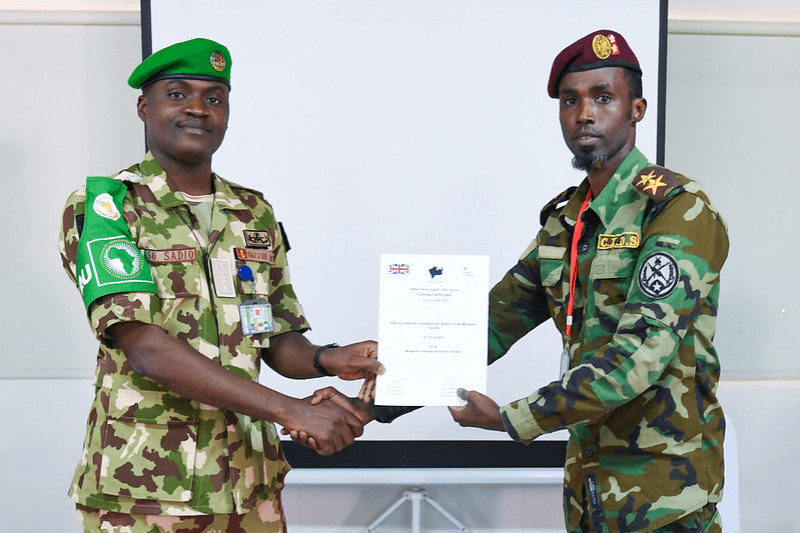In the pursuance of self-reliance and sustainability of national security by Somalia, IEDs remain a nagging problem. From the community level to national forces, attacks from such explosives have left an average of about 600 incidents and more than 1,500 casualties in the last 12 months.
The SNA, supported by the UNMAS, has been right at the front line in fighting this deadly menace. Now, with one giant leap forward, a month-long ‘train-the-trainer’ course has started in Mogadishu to equip SNA personnel with more efficient skills in dealing with the risks imposed by IEDs.
James Swan, the UN Acting Secretary-General’s Special Representative for Somalia, spoke to the importance of the course during its inaugural ceremony. “I think everyone in the room knows how serious this threat is. The primary targets are your fellow soldiers in the SNA. It’s crucially important that a solution be found to address this threat,” Swan stressed.
First-Person Accounts of the IED Threat
Soldiers who attended the training shared experiences of horrific moments in the front line against the IED menace. Lieutenant-Colonel Mohamed Mohamud Awale, who had served in the Hiraan and Galgaduud regions, recalled the many dangers in the field. “We lost many comrades due to enemy blockades and remote-controlled IEDs,” he recalled, highlighting urgency for better countermeasures.
Similarly credible credence came from Colonel Faisal Ali Noor with a searing scar of tragedies that he related. “Sometimes while digging, the IEDs would explode and some of our colleagues were martyred. Sometimes, because of our limited knowledge, we even used to burn fire in order to neutralize the IEDs, and it caused more deaths,” he said.
Critical threat addressed
The statistics for 2023 are no different, with the SNA reporting 378 deaths and 451 injuries from IED incidents. Such training programs are important in developing the competency of the Army as Somalia edges closer to complete reliance on security.
Keep Reading
Equipping Somalia’s national forces with the ability to counter the persistent threat from IEDs through comprehensive training, mentoring, and operational shadowing will be important steps toward national security and stability.

